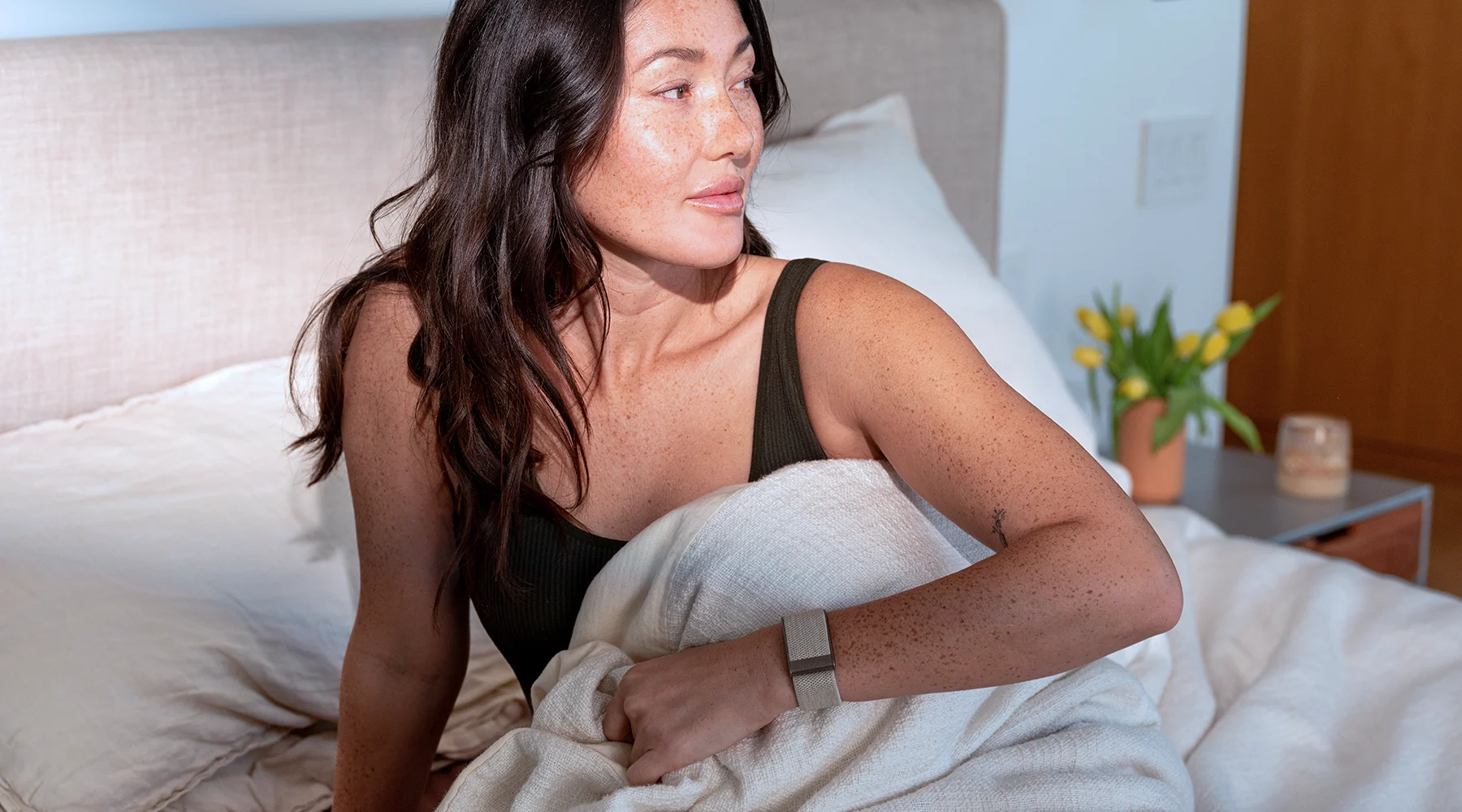Topics
- Article
- Health & Wellness
- Recovery
- Research Studies
- Sleep
CBD and Sleep: Insights from WHOOP Data

Sleep is an essential restorative process that supports both mental and physical health. Despite its importance, optimal sleep duration and quality can be difficult to attain. The CDC reports that around 70 million Americans suffer from sleep disorders, and that one third of U.S. adults don’t meet daily sleep recommendations.
Over the last few years, the use of sleep aids — medications marketed towards improving ease of falling and staying asleep — has been on the rise. In a recent study, just over 18% of adults reported using sleep aids in the past 30 days on a regular or semi-regular basis.
CBD is a potential alternative to traditional sleep aids such as benzodiazepines and melatonin-receptor agonists. WHOOP Data offers insight into the relationship between CBD and sleep. Findings from WHOOP Research can be used to examine the possibility of using CBD as a strategy for promoting improved sleep conditions.
What is CBD?
CBD is an abbreviation for the term cannabidoil, which is one of the two main active ingredients in marijuana. On its own, CBD does not contain THC, the main psychoactive compound present in marijuana. CBD has grown in popularity in recent years. Many industries have chosen to market its potential health benefits, and it has been infused in a wide range of products such as cosmetic products, beverages, food items, oils, and capsules.
CBD Use Amongst WHOOP Members
CBD usage is one behavior that can easily be logged in the WHOOP Journal. WHOOP research has examined what percentage of members regularly track CBD usage, as defined as logging a minimum of 10 journal entries over the past 3 months. 10.1% of female WHOOP members and 8.5% of male members regularly log CBD usage. CBD consumption increases in frequency with age and is highest during the month of April and on weekdays.
Impact on Sleep
WHOOP research found that CBD consumption before 10pm increases total sleep duration by 8.814 minutes. The research also examined the impact of marijuana and alcohol consumption on sleep duration. Marijuana use was associated with an increase in total sleep duration of 11.385 minutes, while alcohol intake decreased total sleep duration by 5.862 minutes.
This study also looked at the relationship between CBD, marijuana, and alcohol consumption and time spent in various sleep stages. CBD usage increases slow wave sleep duration by 1.751 minutes, REM sleep duration by 2.501 minutes, and light sleep duration by 4.371 minutes.
Marijuana consumption was linked to increased light sleep duration by 10.447 minutes, slow wave sleep duration by 2.038 minutes, no significant change in REM sleep duration, and an increase in wake duration by 2.916 minutes. As for alcohol intake, there was no significant change in light sleep and a decrease in slow wave sleep duration by 1.329 minutes, a decrease in REM sleep duration by 5.364 minutes, and an increase in wake duration by 2.758 minutes.
All in all, these findings indicate that the increase in total sleep duration from CBD is mainly due to increased time spent in light sleep, as well as slight increases in the REM and slow wave stages. With marijuana consumption, the increase in total sleep duration is mainly due to increased light sleep, while the decrease in total sleep duration with alcohol consumption is primarily due to a loss of restorative slow wave and REM sleep. In addition, both marijuana and alcohol usage are linked to increased time spent awake in bed at night, indicating that consumption of these substances is associated with less efficient sleep.
Sleep Timing
WHOOP research also aimed to investigate the impact of sleep timing on the relationship between CBD and sleep. Findings indicate that CBD works better for individuals who sleep during the day (specifically, between 4am and 5pm) than those who sleep at night. Combined with CBD usage, day-sleeping increased sleep duration by 30 minutes. This suggests that CBD may be most effective as a sleep aid for those who sleep during the day, and may hold particular value for night shift workers and other individuals following nocturnal sleep patterns.
Individual Differences in CBD Use
CBD use does not produce uniform benefits or affect every person who tries it in the same way. There are significant individual differences in CBD usage, and the effects of CBD consumption on sleep may vary as a result. CBD usage can cause interactions with certain prescription medications such as statins, blood thinners, and anti-inflammatories, and negative effects with specific health conditions like liver disease. It’s always a good idea to check in with your healthcare provider before adding a new supplement or medication to your wellness routine.
The Relationship Between CBD and Sleep
Research into the relationship between CBD and sleep, and the potential mechanisms underlying the purported benefits of CBD usage on sleep is still in very early stages. Initial studies suggest that CBD can be helpful in improving sleep for individuals dealing with insomnia.
Another study found that individuals using CBD reported decreased anxiety levels that lasted throughout the length of the study. There were also improvements in self-reported sleep scores for the first month of the study, after which there were fluctuations in the sleep scores. It’s clear that additional research is needed to shed light on whether the effects of CBD usage on sleep last in the long-term, and what factors mediate this relationship.
Track Your Sleep with WHOOP
WHOOP provides accurate, comprehensive sleep monitoring. WHOOP tracks several sleep metrics, including sleep duration, wake events, efficiency, sleep debt, consistency, performance, and latency. WHOOP will also keep track of how much time you spend in each sleep stage. Based on your metrics, Sleep Planner offers personalized recommendations to enhance your sleep and support optimal health and performance.
With WHOOP, you can easily track changes in your sleep performance over time and observe how adjustments in lifestyle habits such as CBD use affect your metrics.